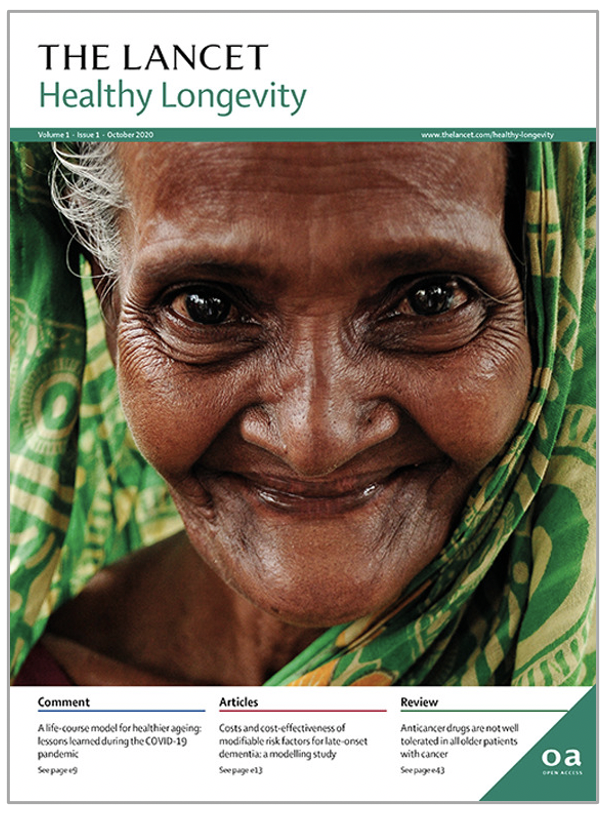Longevity Project News
Surprising New Retirement Confidence Survey Finds Retirees Say: What Pandemic?
But for many workers, it’s a very different story
How Family Caregivers Can Avoid Money Catastrophes
The pandemic has heightened the financial strain, so here's timely advice.
New Lancet longevity commentary urges us to examine how we’ve treated an aging population during the pandemic
In the inaugural Lancet Healthy Longevity, lead Author Ashley Jowell, a second year medical student, and her coauthors examine strategies from around the world to improve well-being in our aging populations, applying lessons from the pandemic to ordinary life.
From the Editor’s Desk: Feeling Bullish on the Potential of the Longevity Economy
Forget Bitcoin and real estate speculation. The longevity economy is rife for more upward potential – a realization that is taking hold for private and corporate investors. The numbers can’t – and shouldn’t be – ignored.
Americans are living 30 years longer on average — and that's a big plus for businesses
Stanford's Century Summit looks at how longevity is impacting innovations and everyday life.
Is the 60-Year Curriculum the Future of Learning?
Why some say: Goodbye, lifelong learning and hello, "long life learning"
Longer life expectancy, complicated retirement savings systems leaving many low-income workers unprepared for retirement: speakers
Even before the pandemic began, almost half of all U.S. families reported lacking any retirement savings beyond Social Security, according to the Economic Policy Institute.
Aging Could Be the Next Booming Business
Those over 50 account for more than one-third of the U.S. population, half of all consumer spending, and 83% of household wealth. That should make catering to the aging population a lucrative opportunity for entrepreneurs and investors—one that could be akin to investing in the software boom in the 1980s or internet in the 1990s.
Navigating the challenges of living a longer life
A Wells Fargo partnership with the Longevity Project in collaboration with the Stanford Center on Longevity explores the many possibilities and challenges posed by increased longevity.
What millions of Americans have in common with Seth Rogen and his wife: Caregiving
The pandemic has shed more light on the role, which Stanford Center on Longevity is honoring with a new podcast
Coronavirus Is Blowing Up America’s Higher Education System
As the pandemic shows no signs of slowing, students and teachers are scrambling to adjust—and some universities are ignoring red flags. Says one Stanford professor, “I think the commitment to return students to campus is misguided and reckless.”
New Book Alert!
Don’t Go Broke In Retirement: A Simple Plan to Build Life Retirement Income
Don't Go Broke in Retirement by Steve Vernon, research scholar at the Stanford Center on Longevity, describes a straightforward retirement income strategy that can be implemented in virtually any IRA or 401(k) plan, with or without a financial advisor. It also offers 401(k) plan sponsors a cost-effective way to help their older workers and retirees build a portfolio of lifetime retirement income.
Read more about Steve’s book here.
Americans Seek Fundamental Change To Support Longer, Successful Lives
Americans are looking forward to the benefits of longer lives – especially the opportunity to spend more time with family – but recognize the need for significant changes in society to support increasing longevity, according to a poll from the Longevity Project and Morning Consult.
Read full press release here.
Longevity Project explores the nuanced implications of longer life
As longer life expectancy brings about substantial changes in the makeup of American society, Americans are still grappling with the implications of longer life on how we work, live and learn, according to a poll fielded by the Longevity Project, a new initiative developed in collaboration with the Stanford Center on Longevity (SCL). The mission of the Longevity Project is to generate research and foster public dialogue on the far-reaching impact of increased longevity.
Read the full press release here.
America isn’t ready for longer lifespans
By Ethan Wolff-Mann, Yahoo Finance
At the beginning of the 20th century, life expectancy was under 50 years. Today it’s 78 years. And people are routinely living far past that.
Though the CDC has found that life expectancy has been declining slightly since 2014 — largely driven by drug overdose and suicide — some studies estimate that a large number of children born today may live to 100.
The U.S. isn’t ready for this type of longevity.










